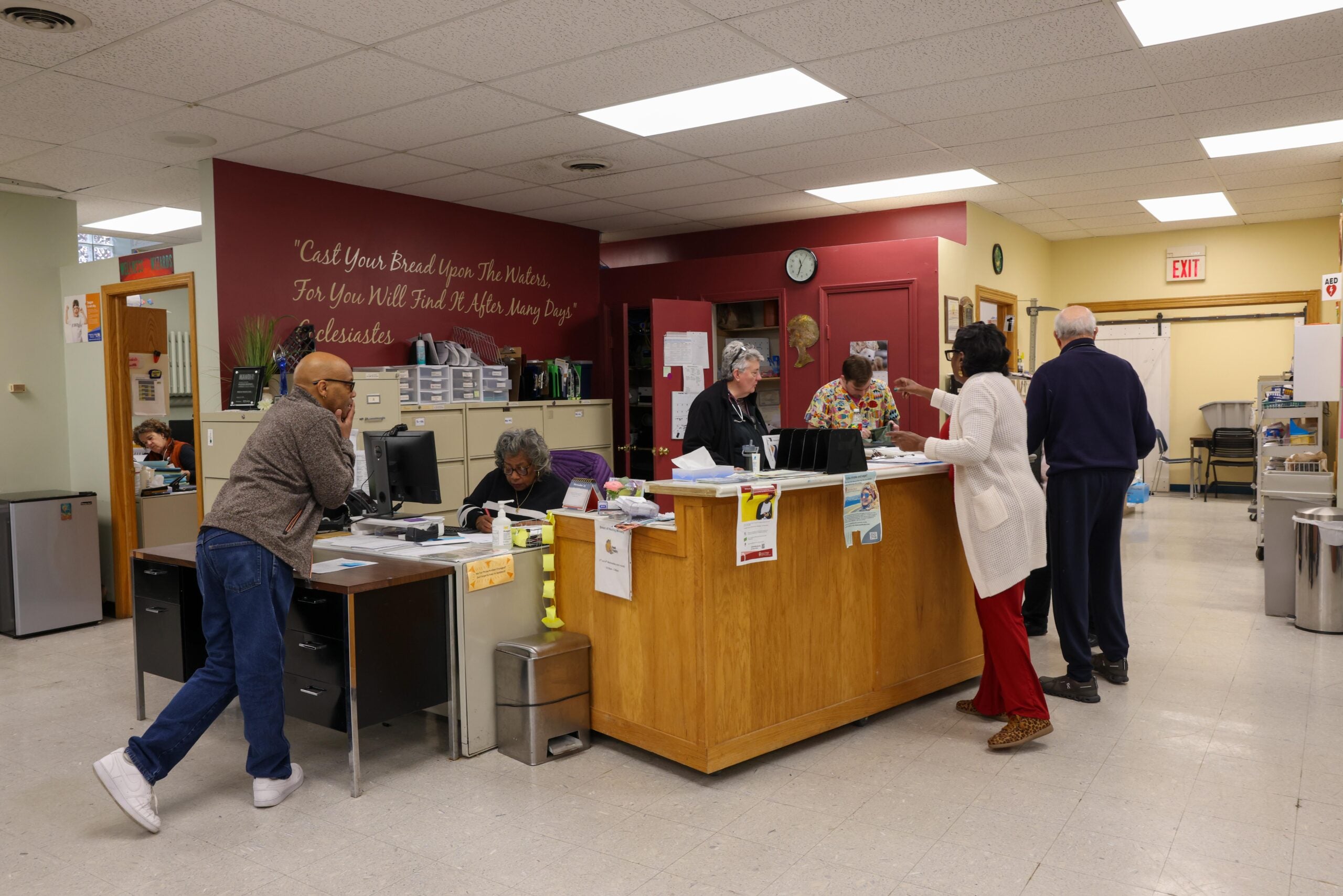A Wisconsin-based international nonprofit dedicated to preventative blindness treatment around the world turns 40 this year.
Combat Blindness International was founded by a Madison-based ophthalmologist and University of Wisconsin-Madison emeritus professor Suresh Chandra.
Executive Director Reena Chandra, Suresh Chandra’s daughter, said her father’s “aha” moment was on a medical trip to India, where roughly 50 patients received cataract surgery in the same time it took Suresh to perform one particularly difficult eye surgery on another patient.
News with a little more humanity
WPR’s “Wisconsin Today” newsletter keeps you connected to the state you love without feeling overwhelmed. No paywall. No agenda. No corporate filter.
“He realized that if he really wanted to make a difference in alleviating blindness in the world, that he needed to concentrate on cataracts,” Reena Chandra said on WPR’s “Wisconsin Today.”
Cataracts are cloudy portions of the eye lens that impair vision. Cataracts are the leading cause of blindness around the world, according to the World Health Organization.
Joining Reena Chandra on “Wisconsin Today” was Dr. Peter Holm, ophthalmologist and chief medical officer for Combat Blindness International. On the show, Holm said cataract surgery is more prevalent in wealthy countries like the United States, and typically the condition is caught before people become blind.
“In the United States, cataract surgery occurs when people have some difficulty reading,” he said. “In countries that are not as fortunate as we are, it’s a situation where they may not be able to see the faces of their grandchildren or their spouses because they are blinded by the cataract.”
“It blocks all the light that comes in when it gets really severe. So when you take these cataracts out surgically and the next day you take the patch off, the look on the patient’s face is kind of confused. But then it turns into a smile because they realize they can finally see. It’s a transformative moment for everyone involved.”
Combat Blindness has screened nearly 5 million people for cataracts since its founding and provided surgery for over 440,000, according to Reena Chandra. She said she’s felt passionate about the cause and been involved since she was about 11 or 12 years old.
She called it her “greatest honor” to continue the foundation’s legacy.
“(Suresh Chandra) always says that we are part of a global community and it is our responsibility to help our neighbors who are less fortunate,” she said. “And that’s a philosophy that I’ve carried on and hope to continue to carry on with the organization.”
In addition to operating in other countries around the world, Combat Blindness hosts a number of programs in Dane County. Reena Chandra said it is important that the organization does work at home as well as abroad to meet its international ambitions.
Through UW-Madison’s Department of Ophthalmology and Visual Sciences, the organization hosts an annual Right to Sight clinic where underinsured or uninsured people may visit for vision screening and glasses.
Additionally, Combat Blindness is working on producing a mobile vision van to visit K-12 schools in the Madison area to provide vision treatment for students who may have failed their initial screenings.
Holm, who worked in the Chippewa Valley, said that many ophthalmologists will work with uninsured patients for no or little costs to ensure they receive proper vision care.
“Being in a smaller community like this, that was something that could really happen by word of mouth and it worked well,” Holm said. “I don’t think that small venue sort of practice works as well in a city like Madison, so the mobile van is a really great idea.”







